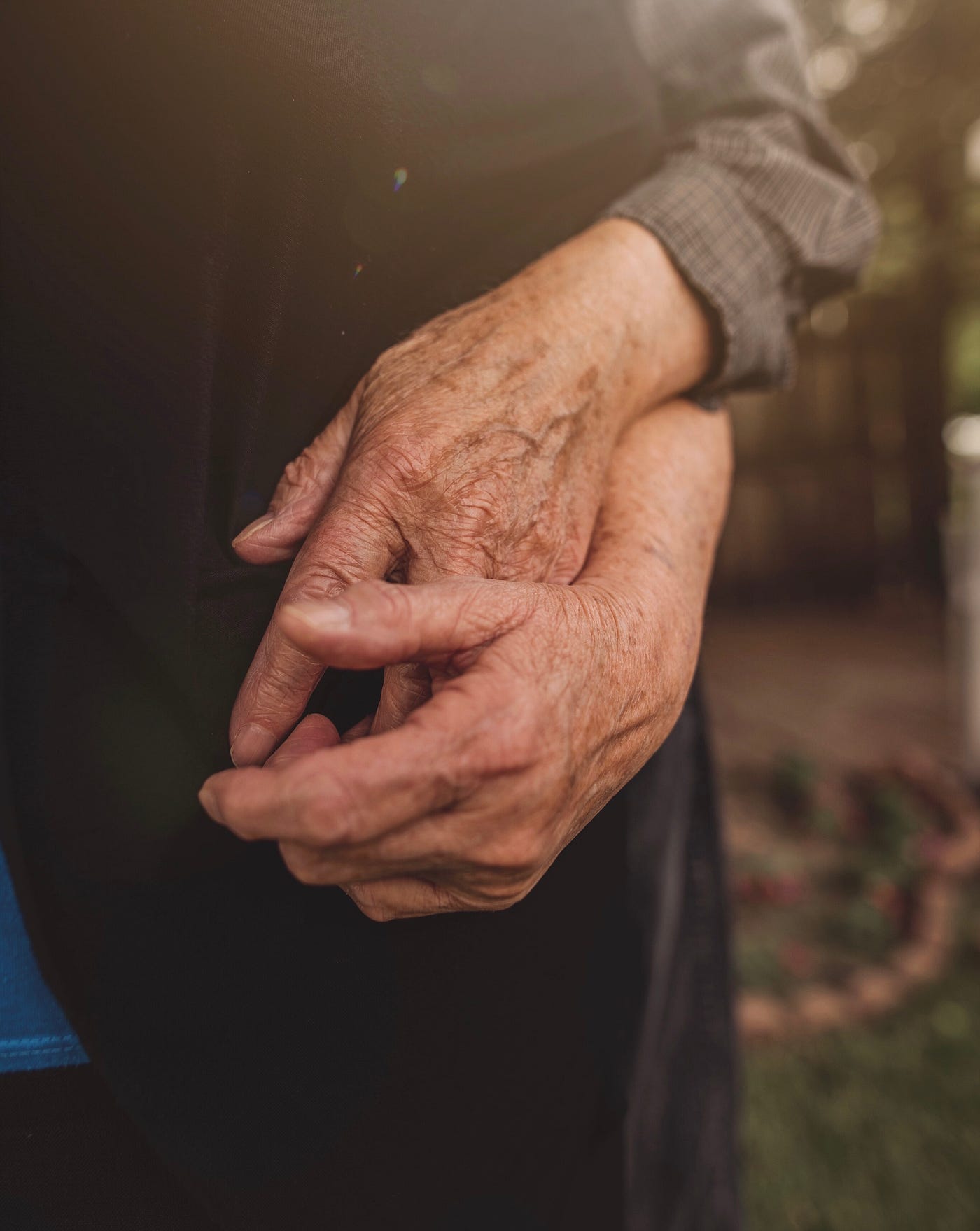A Grateful Daughter Tries to Hold the Image Still.

Photo by Tincho Franco on Unsplash
This year began with a bounce, the heaviness of COVID lifting off December’s tail, setting January aloft, careful yet exuberant. I was excited to leave the N-95 veil in the past as regulations were lifted. Loved ones, who had been previously held at bay, were, once again, touchable. My previous pattern of visiting my parents every three months would be immediately reinstated.
I am in the sixth decade of my life, and find that I am more introspective than during those early years already passed. The days seem more vital as the indestructible armor of my youth dissolves, becoming almost transparent before puddling at my feet.
I push my chair away from my desk and stand to stretch my back, arching catlike in hopes the soreness will abate. That anatomic ache is my only remaining physical discomfort after returning from my recent quarterly trip to Louisville, Kentucky, from Naples, Florida, where I spent a few days and nights on my elderly parent’s couch. The other twinges were emotional as I overtly attempted to perceive my parent’s world through their ninety-two-year-old eyes. I did not turn away but watched with interest, attempting to soak up aspects of their remaining moments of joy, fear, laughter, anger, and wisdom. I cannot help but compare the recent information to that stored from my childhood when they were young and vibrant, and I was feisty and self-centered. Those images press against my soul, quickly moving snapshots of lives once young.
 Photo by Nina Hill on Unsplash
Photo by Nina Hill on Unsplash
My father now takes care of my mother, a role reversal from my youth where she reigned as house queen, chef, and au pair. Now he carefully makes her breakfast, slicing fruit with the skill of the pathologist he once was. Then he collects her medicines. They work as a misaligned team, one reading the labels and dispensing pills while the other places the colorful contents into plastic boxes with the days of the week indicated on the lids.
My father’s eyes show the strain. He worries he will outlive her or, worse, that she might live beyond his time. Then who will take over his loving responsibilities? They’ve been together since they were fifteen and have been married for seventy-one years. In this world of cell phone centricity, electric cars, transitional marriage, and world travel, how many of us even have friends we’ve known for fifty years, let alone been in a relationship for eighty?
She claps and raises her voice to loudly call his name, as he is primarily deaf despite mechanical aids. He crosses the room and leans so close their noses almost touch. His eyes are tight with concern, yet he still tries to smile. “What do you need?” he asks softly. The answer does not matter; water, blanket, bagel, tv remote, heating pad, or a granola bar. He touches her face gently. “I’ll be right back,” he says.
Love looks different at ninety-two. My siblings and I grew up finding them in each other’s arms in the kitchen, their lips locked in a kiss. He would whisper things we couldn’t hear into her ear to make her giggle or occasionally blush. Now, his love exists to keep her on this planet, in his orbit, for another day. I see his concern as I pack my bag to leave for the airport, promising to return in six weeks.
I was the most defiant of their three children — independent, demanding, and like my mother. Before leaving, I sit on the edge of their bed and hug and kiss her goodbye. “I’ll see you in June,” I say. We look into each other’s eyes and silently pray that to be true.
Time is different now. When I was thirty, I believed I had all the minutes in the world in front of me. Time to grow, make mistakes, become a mother, learn to love, and lick my wounds when I failed. Now, at sixty-seven, those minutes feel like seconds, ticking silently past me. Some say time is vertical — another concept I never understood until now.
Now I swipe at the passage of time with my magic net, hoping to scoop up the seconds like a beekeeper and hold them close, a swarming collection for another day when they are needed. I think that time is coming soon.
